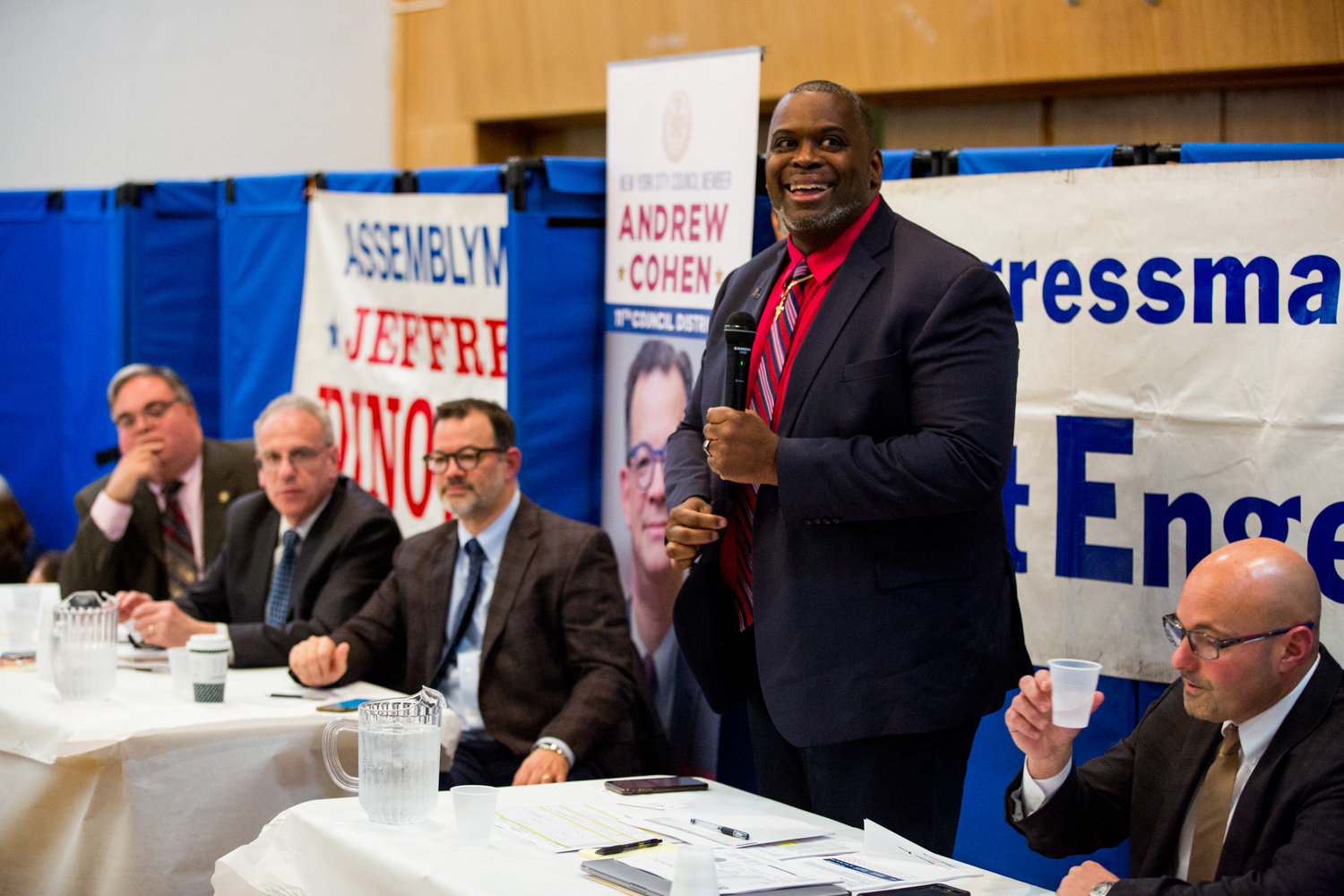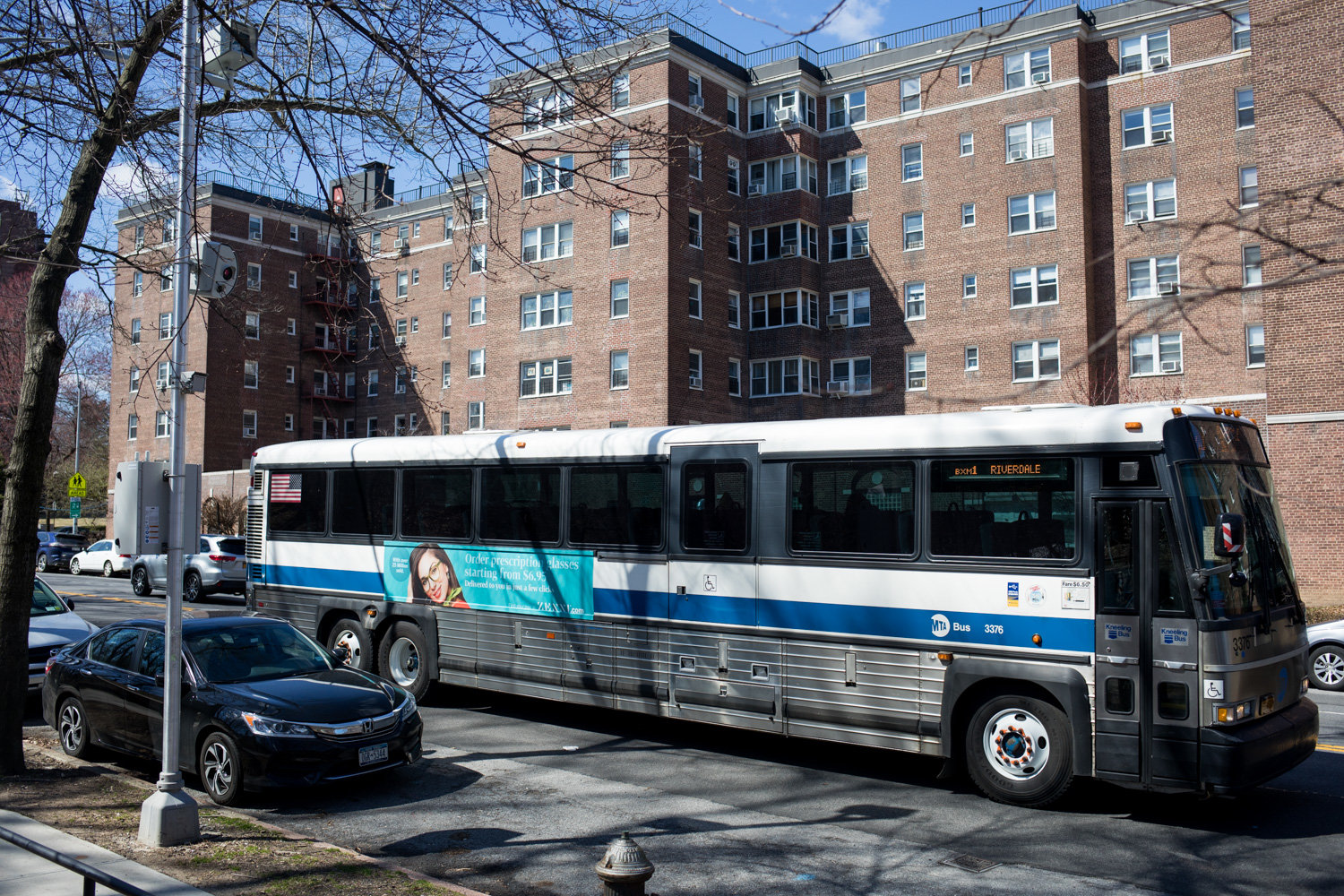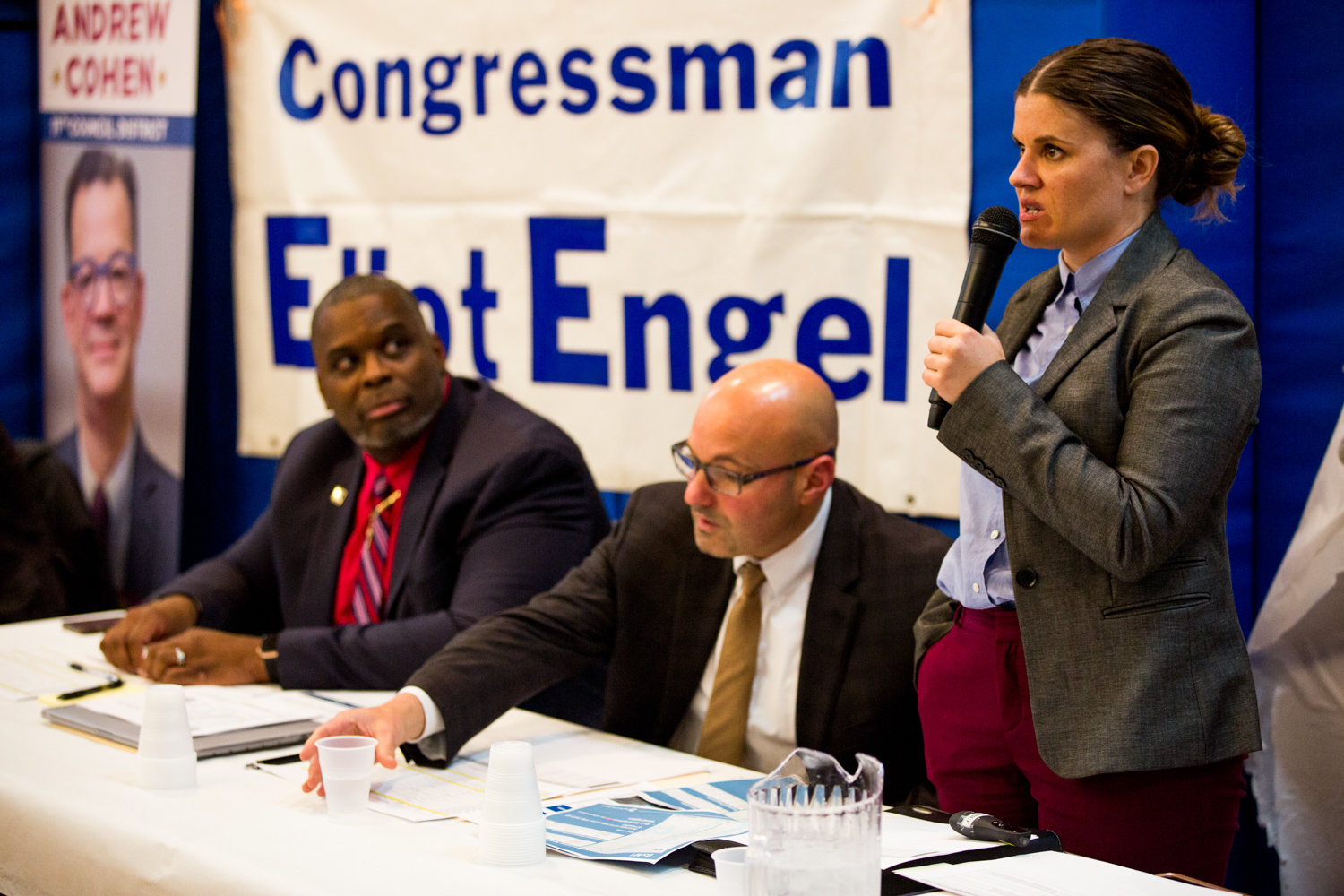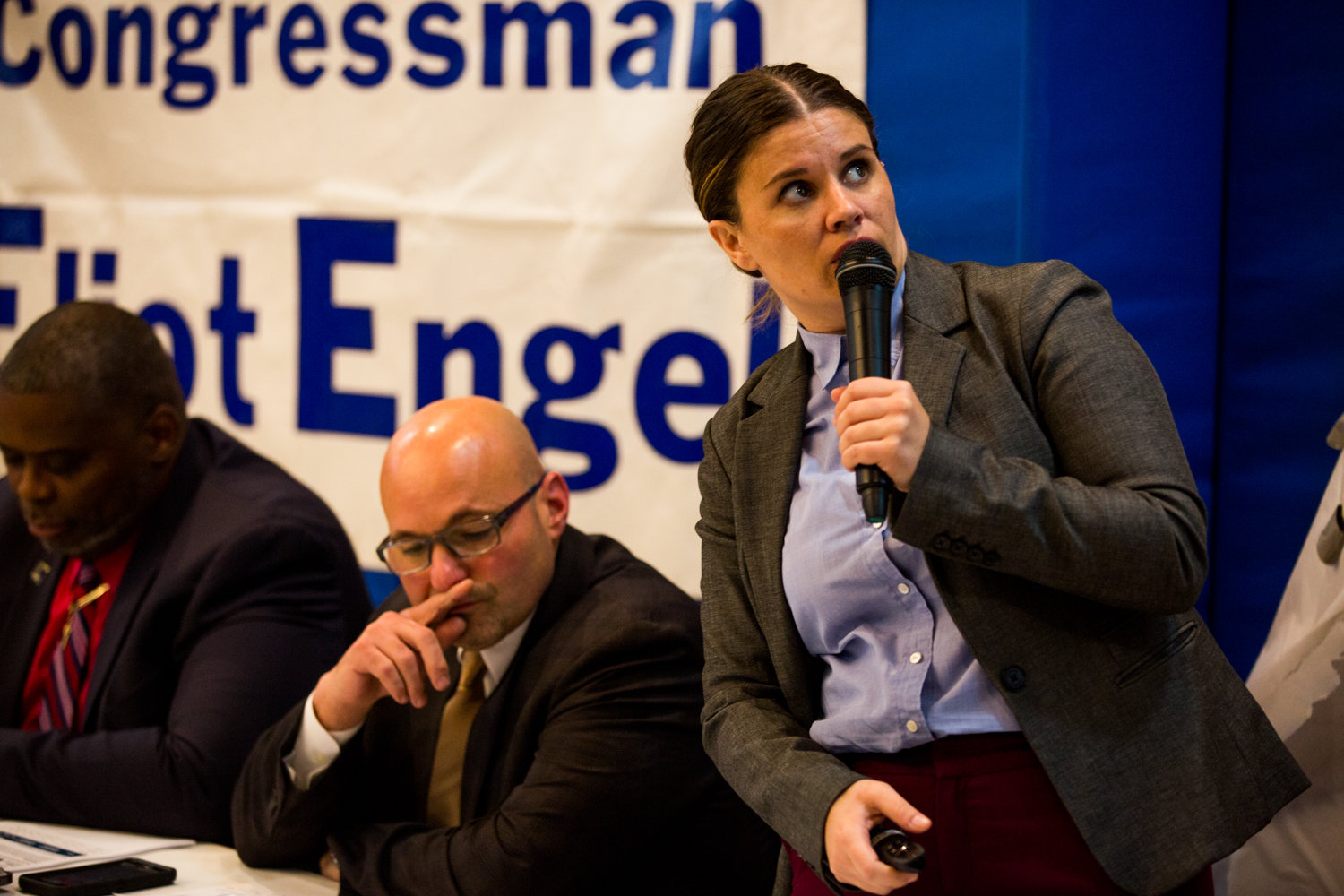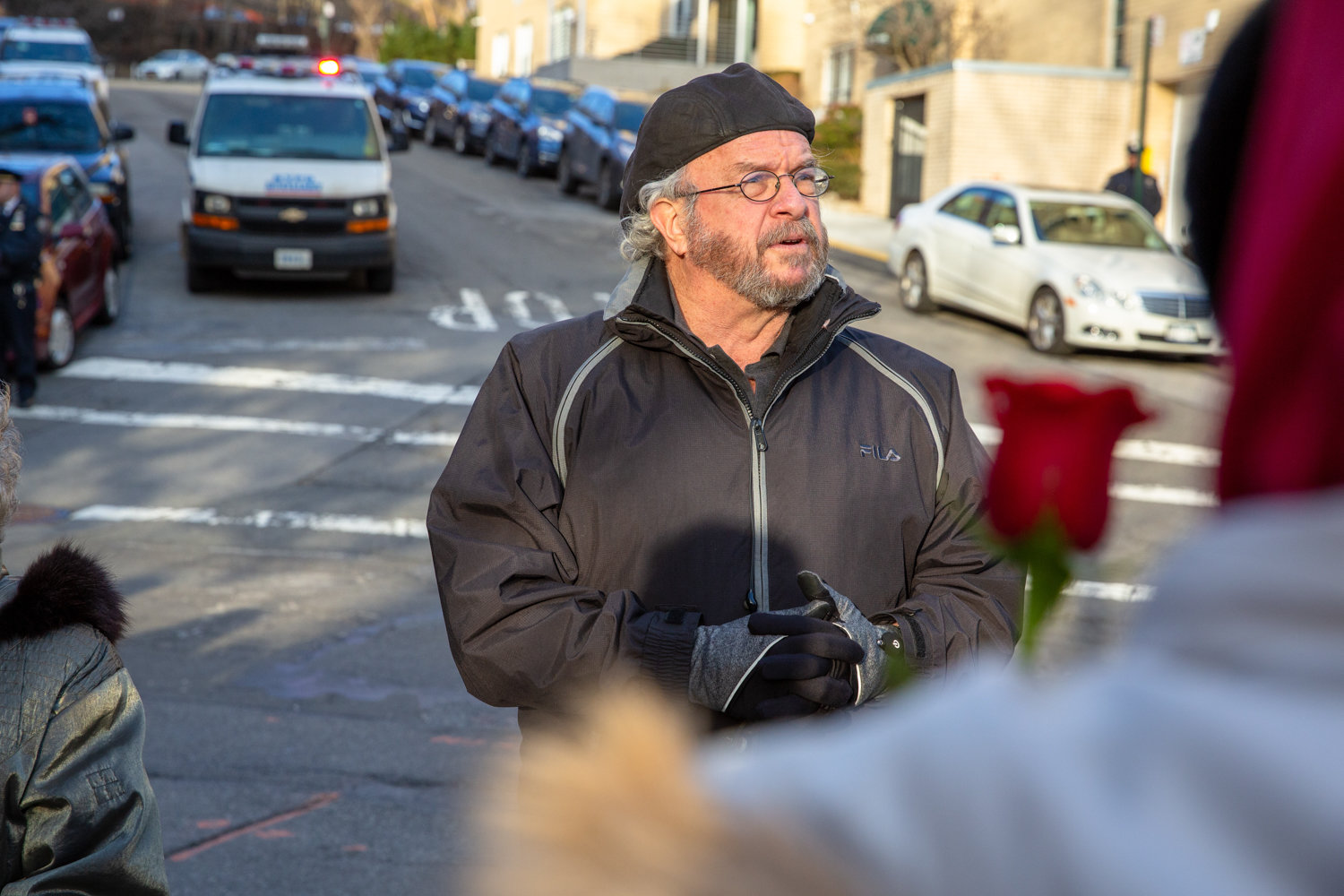Will off-peak express get a reprieve?
A month after MTA representatives met with some 400 angry straphangers from this part of the Bronx, they were back to hear even more at the December meeting of Community Board 8’s traffic and transportation committee. And one thing those representatives wanted to make clear? Its “final plan” on the Bronx bus redesign was not exactly the “final plan.”
The “final plan” that prompted November’s impromptu meeting with elected officials like Assemblyman Jeffrey Dinowitz was perhaps a misnomer. While the plan released in late October was billed as “final,” another round of town hall meetings gathering feedback from around the borough was always the plan for the Metropolitan Transportation Authority.
Express bus riders in CB8 got a head start thanks to Dinowitz’s emergency town hall in November, but the listening from MTA officials is expected to continue, they said.
While local buses were mostly unchanged in the redesign plan — retaining their normal routes and stops, for the most part — the three express bus routes — the BxM1, BxM2 and BxM18 — faced dramatic cuts and route changes.
Those service cuts slashed midday and evening service, moving the BxM1 and BxM18 to the Henry Hudson Parkway, removing critical stops along Central Park at Mount Sinai and Museum Mile.
While The Riverdale Y crowd was smaller than the one a month before at Riverdale Temple, they seemed just as passionate about bus.
In fact, many who attended both meetings probably felt they were watching a rerun. The MTA’s presentation on the proposed changes was the same, drawing groans from the audience. While the presentation may have been the same, bus department chief officer Mark Holmes said the agency’s attitude toward Riverdale’s express buses was not.
“That does not mean that we are not working behind the scenes, that we have not gone back to the drawing board, and that we are not looking for alternatives,” Holmes said. “We understand that while off-peak ridership is low, express bus service is essential to the community.”
Few passengers
During a Summer 2018 study, the MTA observed average off-peak ridership of only four or five passengers per express bus, leaving more than 50 seats empty as a large and expensive bus traveled from the northwest Bronx to midtown Manhattan.
Committee member David Gellman argued that despite low ridership, running buses “deadhead”— meaning running empty buses up and down routes out of service so they can begin a new route — simply did not make sense.
“It’s going to take you 45 minutes for a bus to drive from North Riverdale downtown to Madison Square Park,” Gellman said. “If it takes 55 minutes, and you collect four, or eight, or 10 passengers, and you pick up $25 or $50, that will probably pay for gas.
“But that’s not the point. The point is the service. It just does not make any sense whatsoever to run deadhead.”
The MTA is looking for new ways to balance off-peak service to hospitals and museums, and peak service for riders who take express buses to and from work.
“Any connectivity, or anything that you guys are used to accessing with our current express bus service, we are looking at innovative ways to retain as much of that service as we possibly can,” Holmes said. “I don’t have anything concrete to offer you because we are literally, as we speak, working to put together potential givebacks and alternatives that we can go out and present.”
A large rally similar to the one held in Riverdale had drawn roughly a thousand people to Co-op City, he said, including New York City Transit president Andy Byford. That meeting had pushed the MTA to redesign the routes, producing a new plan that had satisfied riders.
Many of the express bus riders turning up for meetings on this side of the borough are longtime residents. Some, like Carol Harry, says she misses the days when private company Liberty Lines ran the service. When the MTA acquired Liberty Lines, a deal was made to keep off-peak service running on similar schedules.
Faulty timing
Harry also believes the timing of the MTA’s express bus surveys was ill-advised, taking place in June when she says bus ridership is typically low.
“As we say in the Bronx and the rest of the city, ‘Do not get it twisted though,’” Holmes said.
“We are working. You’re going to see the same presentation, but that doesn’t mean that when this thing rolls out next year that you guys will not be happy with what you see. I speak for the department of buses, I speak for our president Andy Byford when I say we are still working.”
Jessica Cignarella, a bus service planning manager who worked closely on the Bronx bus redesign, said her team took the criticisms of the November town hall to heart, and were working to make changes to the plan.
Those changes could likely be unveiled in future public hearings the MTA has planned early in the new year, she said. While a date and time is not yet set, the hearing will be held in the Bronx, and Cignarella said that “good news” would be announced prior to the hearing.
“Please don’t think that your concerns fell on deaf ears,” she said, “because they definitely didn’t.”

